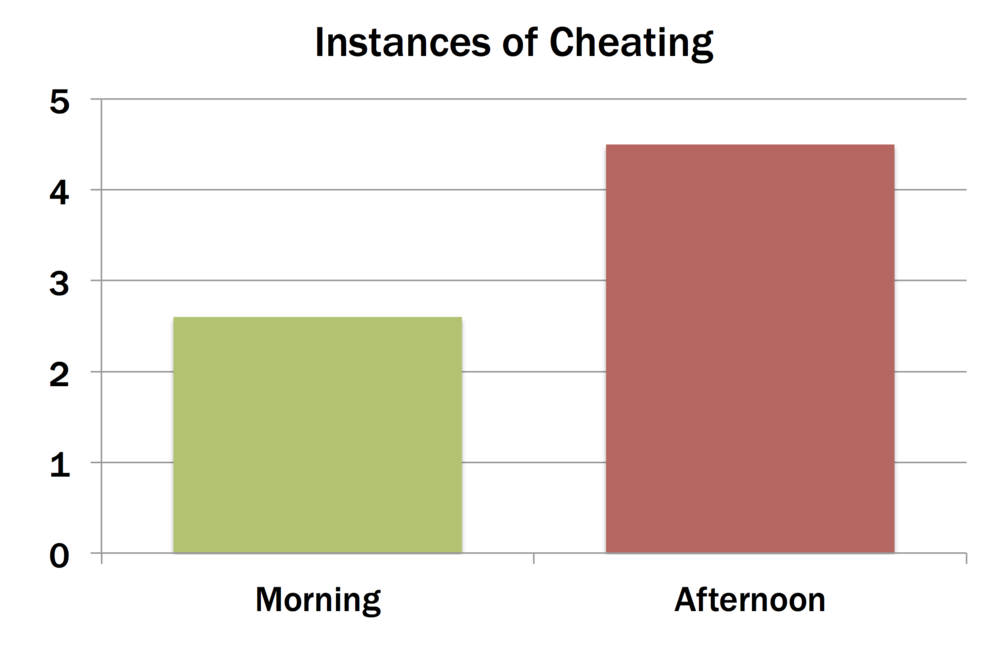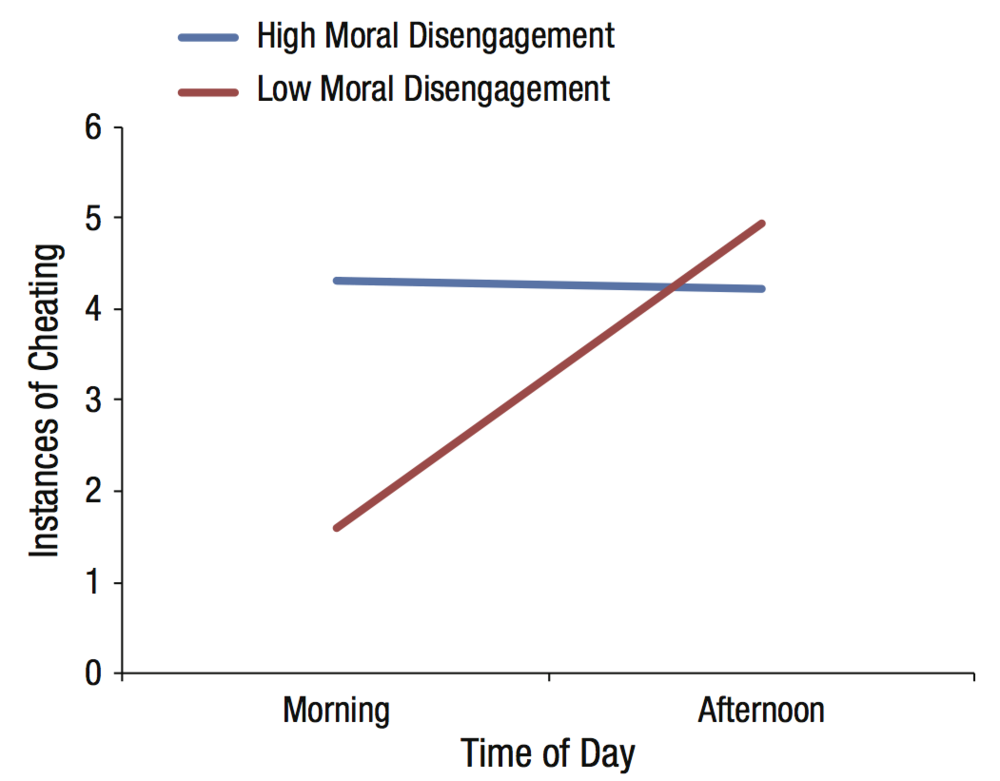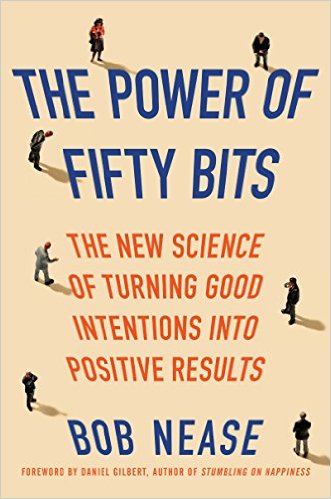The right thing is easy to do… except when it’s not. In fact, doing the right thing often requires self regulation: we must set aside the temptation to do what is in our most immediate, selfish interest to pursue a more virtuous course of action.
It turns out that self control is a limited resource which we expend throughout the day. Every time we focus on a task and avoid distractions (e.g., checking email), we are drawing down our self-control bank account.
If that’s the case, it ought to get tougher and tougher to hew to a moral standard as we trudge through our day. And that’s precisely what two researchers from the University of Utah report in a paper recently published in Psychological Science.
Through a series of studies, Maryam Kouchaki and Isaac Smith tested whether subjects were more likely to cheat on puzzles in the afternoon than in the morning. (The puzzles allowed participants to essentially “self grade” their own performance and to be rewarded accordingly.)
In one study, for example, Kouchaki and Smith provided subjects with 20 puzzles, 10 of which couldn’t be solved. Subjects were rewarded for each puzzle they claimed to have solved. Their measure of cheating was the number of unsolvable puzzles that subjects had claimed to solve.
The results are fascinating. Participants in the morning session reporting solving 2.7 of the 10 unsolvable puzzles, while those in the afternoon reporting solving 4.5 of them. That is, folks facing the temptation in the afternoon were nearly twice as likely to cheat as those facing the same temptation in the morning.

Even more fascinating was what they uncovered when they accounted for overall moral disengagement. They had hypothesized that among the morally disengaged (i.e., creeps) self regulation and thus time of day wouldn’t have much of an effect. And as shown in the chart below (from their paper), they were spot on:

That is, among those with low moral disengagement (i.e., decent folks), time of day mattered… a lot.
If self-control is a scarce resource, there are some important implications, and not just when it comes to moral behavior. Are you more likely to stick to an exercise plan that focuses on working out in the morning? A diet that focuses on more stringent adherence to specific foods at breakfast and lunch than at dinner?



